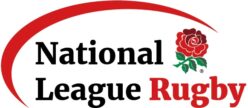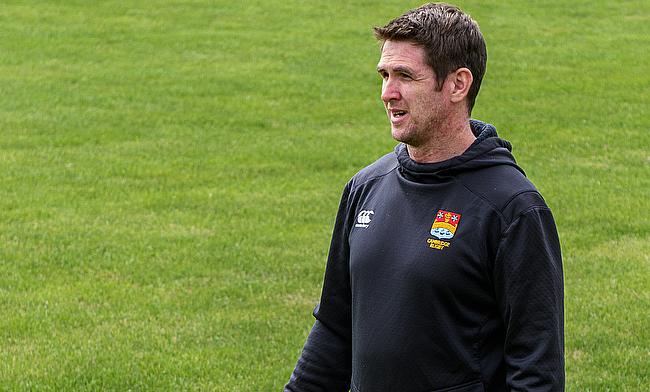Coaches Corner: Richie Williams
Current Cambridge Director of Rugby, Richie Williams, is writing a series of columns on the ncarugby.com website to give readers an insight into what life is like as a coach in the game. Photo Credit: (Chris Fell)
In Richie’s latest post, he hones in on his time in the England Counties set-up and reflects on the numerous tours he has been involved with over the years….
In 2013, whilst living in Antwerp, I applied for a coaching position with the England Counties U20’s.
Fortunately, after a 500mile trip (in a very dodgy Belgian Ford Focus) to the interview at Loughborough University, I was offered a coaching role. Unbeknown to me, this would be the catalyst of a five-year adventure, taking me to exotic countries like Hungary, Holland, Russia and Georgia.
Prior to this, I had already gained some experience coaching in the aspirational pathway. In 2012, I coached the South West U20’s team and witnessed the benefits of the program and the quality of players. It was a fantastic vehicle to allow players who had missed out on Premiership academies to give them the opportunity to represent their country.
To this day, I can remember my excitement and slight apprehension in wearing the heavily branded England kit and singing the national anthem in our first game against Georgia U20’s!
We won the first Test match and then lost the second game which was played at Cambridge RFC. I loved my first experience and learned some valuable lessons from other senior coaches, Bob Hood and team manager Rob Cliverd. That early squad featured National League and professional players like, Jamal Ford-Robinson, Jack Daly, Rhodri Adamson, Ben Penfold, Sam Hanks and Jak Rossiter. I would enjoy coaching some of these again in my future career.
In my next season, I would step up to the role of head coach and we would be travelling to Hungary. It was this year where I got the opportunity to start my relationship with one of the most charismatic coaches that I have had the pleasure of coaching alongside, Paul Arnold or ‘Arnie’ as he is affectionately known and he would also become a good friend.
The whole experience in Hungary was about ‘making memories.’ Whilst we comfortably won the Test series, the week was more about being ambassadors for the RFU and working to enhance the visibility of rugby in a developing rugby nation.
With the support from RFU staff Ian Bletcher and Tony Robinson, we visited orphanages, schools and helped with coach and player development sessions. It was this outreach work that captured everyone’s emotions.
The best memory, however, came after a cruelly designed hill sprint session for the team. Arnie and myself had lined up a wine tasting afternoon with one of the local vineyards. The vineyard was conveniently located at the top of the hill that the players would be sprinting up. To this day, I can recollect how quickly a persons’ emotions can change from despair to joy. Redruth pair Tommy Phillips and Todd Prisk were not overly excited with the hill sprints, but were very pleased to reach the summit and see the delights awaiting them!
What a week making memories with the England Counties boys and @arnie_4 in Hungary pic.twitter.com/j8KnAPCq3p
— Richie Williams (@RichieWills10) June 14, 2015
It was on this tour where I also connected with Gábor Stiglmayer who was working for the Hungarian Union. This relationship would grow over time and was another chance conversation that opened up the next chapter in my career.
There are far too many memories from the Counties 20’s experience to write down and equally, do them justice. I would, though, like to highlight some moments that have shaped me as a coach.
Year three was a two Test match series in Moscow against Russia U20’s, who at the time were being supported by English coaches Andy Kyriacou and Howard Graham. Both games were extremely physical with both sets of players battering each other. We won the first Test and lost the second game by three points after electing to go for the win after being awarded a penalty with 79 minutes on the clock. That loss still stings to this day, mainly because of our preparation going into the week.
In my earlier post, I referenced the fact that I struggle to process defeat. Immediately after any game, whether a win or a loss, I look internally at myself and how I have prepared the players and supported them in their build up. Questions like, ‘have we sold the game plan enough?’, ‘have we selected the right combinations?’, ‘have we given the leaders enough opportunity to lead?’ All of these form part of my immediate post-mortem.
After the first Test in which we won, I feel that we didn’t prepare the leaders well enough around their on-field decision making. We were also a little complacent and naïve in our analysis of the opposition.
To this day, I implicitly trust my players and the leaders in their decision-making processes but for this to be successful, I believe, we must, as coaches, support the leaders and prepare them to be able to make important decisions at key moments in games. It is a lot about managing emotion and thinking clearly under pressure. The ‘RED-BLUE Gazing’ concept is something that I have paid particular attention to over the last few years. Retrospectively, it would certainly have helped in the pressure cauldron of Moscow.
In the last two seasons, we have visited Holland and Georgia, respectively. The Georgian experience will go down as one of my finest memories of being involved in rugby. We were able to apply some of the lessons that we learned from the Moscow adventure and put them into practice. The country was beautiful and the people loved their rugby.
We won both Test matches in the last 5 minutes against an U20 team that was about to compete in a Junior World Cup. The atmosphere in the first Test match really stands out.
The players knew the physical challenges that they would be presented with and came out on top. The physicality from both teams spilled over on the stroke of half time when a mass brawl erupted. Fitz Harding, who has recently signed for Bristol Bears, was unfortunately shown a red card.
The amount of work that everyone put in to contribute to the overall outcome was exceptional. We invested a lot of time and energy in our leaders and placed huge emphasis on building team connections and enjoyment. An open-minded yet process driven management team underpinned everything. Chris Brookes our team manager and another life long friend, made sure there were no stones left unturned. His meticulous planning, combined with his sense of humour, lent itself beautifully to the role he still holds today.
Since COVID-19, there have been question marks surrounding the entire aspirational pathway. My viewpoint and argument is slightly one-sided, as I have witnessed first-hand the extreme benefits of the programme. The selected players are working in a very unique environment in which time together is very limited.
Huge focus and attention has to be placed on quickly building a team that are all aligned in their thinking and understanding. The success rate of the U18’s, U20’s and Senior Counties, are a testament to the continued fantastic work of the CB’s [Constitute Bodies] and the county program. Success stories are there for everyone to see.
Personally, I still take great pleasure in seeing any one of the 125 players that I had the pleasure of coaching during my time. I am fully confident that all of those players and management teams would fully endorse the program and the memories they have made.

